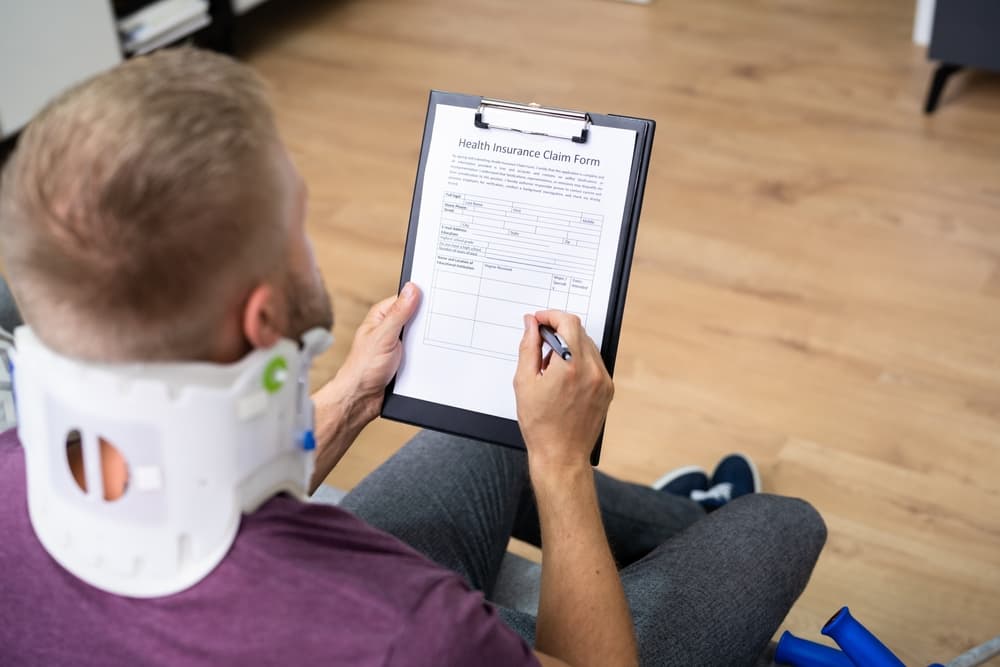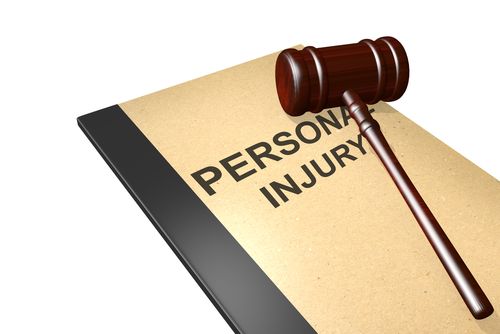If you’ve suffered a neck injury in an accident, you may be dealing with pain, loss of mobility, and the uncertainty of what the future holds. Whether it’s from a car crash, a slip and fall, or an incident at a construction site, neck injuries can dramatically affect your life.
An experienced back and neck injury attorney from Rosenberg & Gluck LLP can guide you through seeking compensation for your injury, helping you hold the responsible parties accountable while protecting your rights. Your lawyer is prepared to meet the challenges that can arise in such claims and help you overcome these hurdles.
In many cases, recovery is a long and challenging journey, often complicated by financial concerns, medical bills, and uncertainty about whether your condition will improve. In these difficult times, seeking legal help can be essential to your recovery.
Types of Neck Injuries
The neck is a delicate part of the body, housing the spinal cord and supporting the head. When injured, the consequences can range from mild discomfort to severe, life-altering damage. Common neck injuries include:

- Whiplash: Whiplash occurs when the neck is suddenly forced to move beyond its normal range of motion. This injury is most common in car accidents, particularly rear-end collisions. It can cause severe pain, stiffness, and limited movement. In some cases, symptoms might not appear immediately, leading victims to underestimate the seriousness of the injury.
- Herniated Disc: A herniated disc in the neck, or cervical spine, happens when the soft, jelly-like center of a spinal disc pushes out through a tear in the tougher exterior. This can irritate nearby nerves, causing pain, numbness, or weakness in the arms and hands.
- Fractured Vertebrae: A vertebrae fracture in the neck can result from traumatic accidents like falls, car crashes, or construction accidents. This type of injury is extremely serious and can lead to permanent damage, including paralysis, if not treated promptly.
- Nerve Damage: Neck injuries can cause nerve damage, which can lead to chronic pain, weakness, or loss of sensation. Nerve damage can be difficult to treat and may result in long-term complications.
- Soft Tissue Injuries: Damage to the muscles, ligaments, and tendons in the neck can cause pain and stiffness, limiting one’s ability to move freely. While sometimes considered minor, these injuries can still require extensive treatment and rehabilitation.
Progressive Neck Injuries
A progressive injury refers to a condition that worsens over time rather than healing or remaining stable. In legal terms, this type of injury poses challenges because the full extent of the damage may not be immediately apparent at the time of the accident.
Neck injuries, particularly those involving the spine, often fall into this category. For example, whiplash or a herniated disc might initially cause mild discomfort, but over months or years, the damage can lead to chronic pain, reduced mobility, or even permanent disability.
When it comes to seeking compensation for a progressive injury, the timing and completeness of your medical evaluation become crucial. Insurance companies may attempt to offer settlements based on the early stages of the injury, which could significantly undervalue your claim.
An experienced personal injury attorney can help by ensuring that future medical expenses, long-term rehabilitation, and potential loss of income are factored into your compensation. They can also work with medical experts to demonstrate how your injury is likely to worsen over time, helping to secure fair compensation that reflects the full scope of your condition.
Accidents that Cause Neck Injuries
Neck injuries can occur in many different types of accidents, and each scenario may present unique challenges in seeking compensation. Below are some of the most common situations where neck injuries arise:
Car Accidents
Motor vehicle accidents, particularly rear-end collisions, are among the leading causes of neck injuries. The force of impact can whip the head back and forth, causing soft tissue damage, whiplash, and sometimes more severe spinal injuries.
In New York, the no-fault insurance system means that your insurance should cover medical expenses, but serious neck injuries may exceed these limits, leading to the need for a personal injury claim after an auto accident.
Slip and Falls
A simple slip and fall can result in serious neck injuries, especially if the fall occurs from a significant height or at an awkward angle. Premises liability laws stipulate that property owners in New York are legally obligated to maintain safe premises, and if their negligence leads to your fall, you may be entitled to compensation.
Construction Accidents
Construction sites are inherently dangerous environments. Workers can suffer neck injuries from falling objects, machinery accidents, or even falls from scaffolding or ladders.
In New York, injured construction workers may be eligible for workers’ compensation, but if a third party (such as an equipment manufacturer) was responsible for the injury, you may also have grounds for a personal injury claim.
Sports and Recreational Accidents
Neck injuries are also common in sports or other recreational activities, such as biking or skiing. You may have a case for compensation if negligence or poorly maintained equipment contributed to your injury.
Workplace Accidents
Aside from construction sites, neck injuries can happen in any workplace, particularly in jobs involving physical labor or repetitive motions. Depending on the circumstances, you may be eligible for workers’ compensation or need to file a claim against a negligent third party.
Challenges Surrounding Neck Injury Claims
Neck injury claims can be particularly complex for several reasons. Some injuries may not present symptoms immediately, making it harder to connect them to the accident. Others may be progressive, with symptoms worsening over time. Below are some of the key challenges you may face when pursuing a neck injury claim:
Proving the Extent of the Injury
Unlike more visible injuries, such as broken bones, neck injuries often rely on medical imaging (such as MRIs or X-rays) to prove their existence and severity. Insurance companies may try to downplay the extent of your injury, especially in cases like whiplash, where the symptoms can be subjective.
Delayed Symptoms
As mentioned earlier, some neck injuries may not show symptoms immediately after the accident. For instance, you may feel fine after a car accident, only to experience pain or stiffness days or weeks later. This delay can complicate your case, as the insurance company may argue that the injury wasn’t related to the accident.
Neck injuries that worsen over time can pose a challenge in determining the full extent of your damages. If your injury is progressive, it may take time for the full impact to become clear, complicating settlement negotiations.
Insurance Company Tactics
Insurance companies are often focused on minimizing payouts. They may argue that your neck injury is pre-existing or exaggerate the degree to which your injury has healed. Dealing with these tactics on your own can be overwhelming, especially when you’re trying to recover.
Multiple Liable Parties
In some cases, more than one party may be responsible for your injury. For instance, in a construction accident, both the site owner and the equipment manufacturer could be at fault.
How a Rosenberg & Gluck Lawyer Can Help You After a Neck Injury
One of the personal injury attorneys on Rosenberg & Gluck’s legal team can help ease your burden. We handle the legal aspects of your case while you focus on your recovery. Here are some key ways our attorneys can assist you:
Investigating the Accident
The first step in any neck injury case is to determine how the accident occurred and who is responsible. A lawyer will gather evidence from the accident scene, interview witnesses, and obtain any relevant medical records or accident reports. In construction site accidents, they may work with safety experts to determine whether violations of New York’s labor laws contributed to the incident.
Maximizing Compensation
When calculating the value of your claim, a lawyer will consider both current and future expenses. This may include ongoing medical treatment, rehabilitation, lost future income, and the cost of any assistive devices or home modifications you may need. They will work to ensure that you receive compensation that reflects the full impact of your injury, including any emotional or psychological suffering.
Negotiating with Insurance Companies
Insurance companies are often reluctant to pay full compensation for neck injuries. A lawyer will negotiate on your behalf, ensuring that the insurance company doesn’t take advantage of you during a vulnerable time. They will work to secure a settlement that covers your medical bills, lost wages, pain and suffering, and any future expenses related to your injury.
Pursuing a Personal Injury Lawsuit
If the insurance company refuses to offer a fair settlement for what your claim is worth, your lawyer will file a personal injury lawsuit to take your case to court. Sometimes, these cases can still settle before trial, but if you go to court, your lawyer will represent you, presenting a compelling case to the judge or jury. This involves preparing evidence, questioning witnesses, and making legal arguments on your behalf.
New York Laws That May Apply to Your Neck Injury Claim
If you’ve been injured in New York, several laws may affect your case:
No-Fault Insurance
For car accidents, New York follows a no-fault insurance system, meaning that your insurance company will cover medical expenses and lost wages up to certain limits. However, if your neck injury is severe and meets the serious injury threshold, you can pursue a claim against the at-fault driver.
Serious Injury
In New York, the serious injury threshold is a legal requirement that must be met before an individual can file a personal injury lawsuit for non-economic damages (such as pain and suffering) after a car accident. This threshold is outlined under New York’s no-fault insurance law, specifically under New York Insurance Law § 5102(d).

To meet the serious injury threshold, the injury must fall into one of the following categories:
- Death
- Dismemberment
- Significant disfigurement
- Fracture
- Loss of a fetus
- Permanent loss of use of a body organ, member, function, or system
- Permanent consequential limitation of use of a body organ or member
- Significant limitation of use of a body function or system
- A medically determined injury or impairment that prevents the injured person from performing their usual and customary daily activities for at least 90 days during the 180 days immediately following the injury.
If the injury qualifies as “serious” under these legal definitions, the individual may seek compensation for pain and suffering, emotional distress, and other non-economic damages through a personal injury claim or lawsuit.
A lawyer will work to demonstrate that an injury meets the serious injury threshold by gathering medical evidence, expert testimony, and other documentation to prove the full impact of the injury on the person’s life.
Workers’ Compensation
You may be eligible for workers’ compensation benefits if your neck injury occurred at a construction site or other workplace or if you were on the clock at the time. These benefits cover medical bills and a portion of your lost wages, but they don’t include compensation for pain and suffering. If a third party, such as an equipment manufacturer or at-fault vehicle, is responsible for your injury, you may also have grounds for a personal injury claim.
Labor Law 240 (Scaffolding Law)
New York’s Labor Law 240, also known as the Scaffolding Law, protects construction workers who are injured in falls or by falling objects. This law may provide additional protections if your neck injury occurred in a construction accident involving height-related risks.
Statute of Limitations
In New York, the statute of limitations for personal injury cases is generally three years from the date of the accident, so it’s important to act quickly. Your lawyer will guide you through the legal process, ensuring that your case is filed on time and that you meet all necessary legal requirements.
Contact Rosenberg & Gluck LLP for Legal Help for Your Neck Injury
Neck injuries can be life-altering, and the road to recovery is often long and uncertain. You don’t have to face this challenge alone. A personal injury lawyer can help you navigate the legal process, negotiate with insurance companies, and fight for the compensation you deserve.
At Rosenberg & Gluck LLP, we understand the physical, emotional, and financial toll that a neck injury can take. Our compassionate team is here to help you every step of the way.
Contact us today to schedule a free consultation and learn more about how we can assist you with your neck injury claim. Call us at 631-451-7900 or contact us online. We serve Suffolk County, Nassau County, and the Boroughs.









